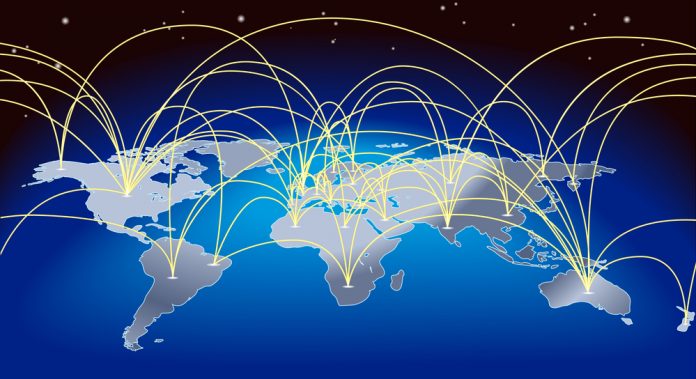This article is written by Shriyanshi Chitransh, from FIMT school of law, GGSIPU. Here, I have given a brief introduction to globalization and how it has affected the legal profession.
Table of Contents
Introduction
The Legal profession has been going through a profound revolution due to globalization with increasing participation and involvement of countries and more access to domestic economies. Globalization should not be looked upon in a restrictive sense as it has brought a change in the teaching of law students, training of advocates to hone professional skills to meet the challenges put down by the globalization and universalization of law. The increase in the high standards norms of the firms or legal industry requires lawyers capable of handling high profile cases which normally includes merger & acquisition, project finance, securities, and initial public offering that demanded by the foreign and domestic firms establishing in India.
Legal profession in India
India has been putting efforts in maintaining the legal sector services in India, to allow foreign lawyers and firms to locate in India. Few Indian firms have been locating their firms’ branches in other countries like the US and UK. This is beneficial as the lawyers will have a wider scope and coverage to the different aspects of the law arena and would be able to practice outside the country. Further, the lawyers need to have original and path-breaking legal research skills to accommodate the need of meeting the challenges in a manner responsive to the country’s goals and aims of the constitution. India as a country striving for development and lawyers will play a vital role in these situations.
Over the years lawyers are expected to provide services to the consumers in the legal sector and hold that lawyers are accountable for the issues caused to the consumers. In the case of Srinath V. Union of India (AIR 1996 MAD 427), the Madras high court held in the views regarding Section 3 of the Consumer Protection Act, 1986. It was held that the Consumer redressal forum will have jurisdiction to deal with claims of advocates. Section 2(U) of the Compensation Act, 2002 explains service along with the lines of the Consumer Protection Act, 1986. Therefore it can be concluded that the trade-related laws are the matter of the subject where consumerism and market forces should be given enough concern.
Changing nature of legal profession
Globalization has brought a huge change in international trade with an increased number of engagements from different countries and their participation and more access to domestic services. India has seen a drastic change in the legal sector services and a lot has changed. The corporate law arena activities in project financing, intellectual property protection, competition law, etc., were almost unknown in the 90s. Back then the number of lawyers working in such a field was limited. But due to globalization, a revolution has emerged and the need for professionals in the aforesaid field has increased.
The money earned by lawyers today is effectively more than before but the workload is also huge. Today’s law students are trained and taught in a way to meet the requirements of this fast-paced environment, where effective work and proficiency in one’s field is given utmost importance, which is the basic requirements.
Difficulty faced by Indian legal education system due to Globalization
- Inadequate Infrastructure: Having a strong well-structured infrastructure plays a requisite role in framing the legal education of a student. In comparison with international law universities, India’s universities are far behind. Good infrastructure helps in shaping the overall life of a student and providing thorough knowledge into the insights of legal education. Ample resources to the faculty as well as to the students play a crucial role in moulding the development of skills. The global legal practitioners and lawyers have put up a high standard in the legal education system. India is still lacking behind in providing enough resources to broaden the scope of the law and accommodate with the ability to level with the aforesaid global lawyers who have been working and studying under the umbrella of learned law experts and well-infrastructured universities. In India, many law universities are unable to fulfil the minimum required infra and specialised law faculty because of insufficient funds.
- Foreign direct investments in education systems: Globalization has brought a whole lot of revolution in society, polity, and professionalism which leads to the era of transformation. Legal education in India has taken a dramatic turn in the last 30 years due to the globalization of trade and business. FDI is enabled in the Indian law education system at the rate of 100% by the automatic route. FDI has provided an edge to the Indian legal system to rise above their standards as well as a challenge giving element. To keep up with the leading globalization, developing nations like India, have concentrated more on establishing a global curriculum and standardised legal education for qualitative legal education. FDI has created a sense of cut-throat competition among the institution. Therefore, Indian law schools are not only centralizing in the studies on Indian laws but majorly in teaching and research in international laws. Law students are taking an active part in national-international moot courts, conferences, and webinars. The faculty are also expected to impart knowledge that can expand the legal minds of students.
- Global programs and international experiences: Indian universities need to get indulge in broadening their international connections by instituting programs like student exchange programs in foreign countries as well as offer education that can stand equivalent to the standards and norms of international universities.
- Continuous legal approach and research-based education: Theoretical knowledge is something which any school can provide but be in a law school, having only theoretical knowledge is not enough. To be able to have an edge over other students can only happen if one is having top-notch research skills. Continuing legal education (CLE) plays a vital element in the industry for professional development, good delivery of legal services and is also a measure of the accountability of the profession. Observation and active participation are something that dearth in the law students under the Indian legal education system. If we observe the most common skill that the top-most faculty possess is the ability to do better research and publication among academics whereas in India not much emphasis is given on research skills of a student or a faculty.
Major issues unnerving the legal service sector
The approach of the legislator and Bar Council of India is not clear regarding the legal sector services in India. The foreign law firms because of their better infrastructure, better knowledge, and developed skills of legal drafting and communication build up a huge competition against the local firms. Therefore, India is still behind to enter the successive rounds of negotiation mandated by the WTO (World trade organization) rules. The provisions of the Advocates Act 1961, and BCI regulations are too rigid and section 24 of the former being an encumbrance. The section states that a person can only be allowed to practice in India if the person has studied law from a BCI recognized Law college and qualified under the Advocates Act, 1961.
Subject to the provisions of the Act, a national citizen of a foreign country can only be permitted to practice law if that person is duly qualified, to practice law in their country. According to Section 33 of the aforesaid Act, advocates are entitled to practice law, except as otherwise as per the Act or any other law for the time being in force, no person shall, on or after the appointed day, be entitled to practice law unless he is enrolled as an Advocate under the Act.
Foreign law firms have been the object of the controversy since 1955. When the Arshurt of UK and White and Case and Chadbourne and Parke of the US, set up their liaison offices in India and were granted to start liaison activities only and not to practice law under the Foreign Exchange Regulation Act, 1973. In the year 1955, a lawyer collective, public interest trust set up by the lawyers for the free legal aid services challenges in the Bombay High court the right of foreign law to practice in India. The main motive of moving to the court is to express that appearing before the court is not only a job but legal drafting and advising clients is. Whereas, on the other hand, the Central Government expressed that the Advocates Act prevented the foreign lawyers from giving advice to the client and from practising in the court.
The government has given its protocol in India for the establishment of legal sector service and also their contention for the foreign lawyers to practice in India and establish law firms if they are qualified under the Advocates Act.
Recently, the Supreme court of India restricted the running of law firms and practice in India but allowed the foreign lawyers to visit India to advise clients on a fly-in and fly-out basis.
Fly in and fly out does not really amount to practise and this is not really a pragmatic approach to deal with it. This decision may deter India’s prospects towards foreign investments and a good legal service sector is what large and sophisticated investors would expect.
Measures taken to meet the Global challenges/opportunity by the Indian legal system
With the emergence of multinationals in India as compared to anywhere else, India has a lot to catch up with other countries in order to level up with other trained lawyers. Competent lawyers are needed for the hour who would be trained in the right legal education system. The Indian legal system should work according to global needs as having good infrastructure and consists of various facilities such as research-based study, revised curriculum, conferences, webinars, moot court, as well as National/ International training programs thus our legal system faces the challenges put up by the globalisation. Majoring in a particular subject can broaden the legal minds yet they require to be trained by competent faculty.
This revolution by globalization needs a committed and ardent faculty who can coach the legal minds in a way to create hardworking and skilful students in the form of lawyers, judges, and jurists. The centre of focus should be relevantly on the reformation of the curriculum so that it can justify the need of the legal profession.
The Supreme court of India in the case of Mahipal singh rana vs State of Uttar Pradesh, noted the need for legal reformation and reviewed the Advocates Act dealing with regulatory mechanisms for the legal profession. The three benched judges had asked the Law Commission and Government of India to take appropriate steps in this regard. Here are some proposals instated:
- CLAT (Commission Law Admission Test): A proposal was established to conduct an all India common entrance examination in order to give admission to the students in the university all over India.
- Enrolment Qualifications: Under this jurisdiction, those advocates who are disqualified on the basis of moral misconduct or corruption would not be re-enrolled in any way to the Bar Council of India. In order to enroll in the Supreme Court, the law entrants need to complete the following requirements:
- Pass the All India Bar Examinations (AIBE).
- The entrant has to complete a three-month training course from a state bar council-affiliated training centre.
- Have been Practiced, for at least two years, before a district or session Judge and other subordinate courts of original jurisdiction.
- Have been Practiced, for at least three years, before a high court and other appellate forums.
- Law firms and foreign lawyers: The proposal was instituted to include partnerships, limited liability partnerships (LLP), private or public limited companies, and any other partnerships which are not actually registered but are for practising law. The foreign lawyers should be allowed to practice on some reciprocality.
- Examining strikes and boycotts: To keep an eye on the strikes or boycotts done by the Advocates from Courts and proposed amendments to include a six-year disqualification from contesting elections of any Bar Association and Bar Council.
Conclusion
There are so many laws that need expert advice and demand legal knowledge in the society which can only be filled when there is a lawyer who has the proficiency to do the required. We not only need lawyers, judges, or jurists, we want them to be enriched with good knowledge and expertise that serves the revolution by Globalization. The challenges created through Globalization can only be resolved if our legal education system chooses to have a multi-purposive and multidisciplinary approach. A good lawyer studies the case through all the political, societal, technological aspects. The only way to fix our position in this changing global legal world is to produce hard-working, devoted, committed, skilled law professionals who are adaptive to reformations.
References
- https://www.mondaq.com/india/management/696680/globalisation-of-legal-services-and-indian-perspective
- https://www.academia.edu/9454780/Legal_Education_Reform_in_India_Dialogue_Among_Indian_Law_Teachers
LawSikho has created a telegram group for exchanging legal knowledge, referrals and various opportunities. You can click on this link and join:
 Serato DJ Crack 2025Serato DJ PRO Crack
Serato DJ Crack 2025Serato DJ PRO Crack











 Allow notifications
Allow notifications


